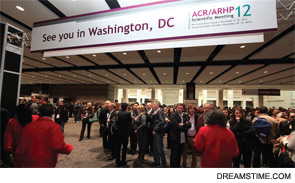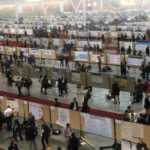
As the 2011 ACR/ARHP Annual Scientific Meeting ends, those of us on the Annual Meeting Planning Committee (AMPC) take time to reflect on the process and on the product.
Each year, the planning process starts with a review of the critiques and assessments of the previous year’s program that are provided by the attendees. Each committee member is charged with reading all comments and reporting on those issues deemed to be most important or most fixable. In addition, each year the AMPC solicits suggestions from the ACR membership as a whole for specific sessions, topics, or speakers that would augment the meeting, and these need to be reviewed. Please submit your ideas for the 2012 meeting to [email protected]. Finally, each member of the AMPC is charged with submitting his or her own suggestions for each of the session types. The principal sessions at the annual meeting include:

- State of the Art talks, delivered by experts working at the forefront of their areas;
- Clinical Symposia and Basic Science Symposia, which are generally each composed of three speakers who deliver talks on related areas of a single general topic;
- Medical Aspects, which represent updates on areas of general medicine relevant to rheumatology;
- Immunology Updates, intended to be a four-lecture series designed to inform practicing rheumatologists about the latest news in immunology; and
- Clinical Review, a series started two years ago to provide “nuts and bolts” clinical talks each day during the lunch hour.
The AMPC’s primary goal is to design meetings that present the latest information about research and clinical strategies encompassing the entire discipline of rheumatology. To accomplish this, the committee is divided into subcommittees charged with planning the basic and clinical science components of the meeting, and separate groups that oversee the abstract selection process.
The AMPC convenes during a weekend in January to plan the entire program. At this meeting, the subcommittees meet separately to organize and prioritize proposals for sessions in their jurisdiction and the committee then meets as a whole to agree on the overall plans.
After the weekend meeting, the rest of the planning process consists largely of detail work, including inviting and following up with speakers, assigning moderators, and ensuring the sessions cover the expected material. Concomitantly, the abstract selection process begins shortly after the submission deadline, and works in a parallel process to select podium presentations and posters. This is one of the most important committees in the ACR, and its work results in the highest profile aspect of the ACR.
The AMPC needs interested and motivated members to ensure the annual meeting continues to represent the very best in rheumatology research and clinical care. Please consider volunteering for AMPC next spring during the ACR’s annual call for volunteers.
As we move beyond this year’s meeting, we are entrenched in the planning for next year’s meeting. We look forward to seeing everyone in Washington, D.C. next November!
Dr. Block is immediate past chair of the AMPC.

